Interface Studio Architects, an architecture office engaged in design and research projects in cities across the U.S., collaborated with Cooper Hewitt to adapt its Gray Area project for the museum’s Process Lab. In this blog post, ISA designers Brian Phillips, Deb Katz, and Alexandra Gauzza share their perspective of the iteration.
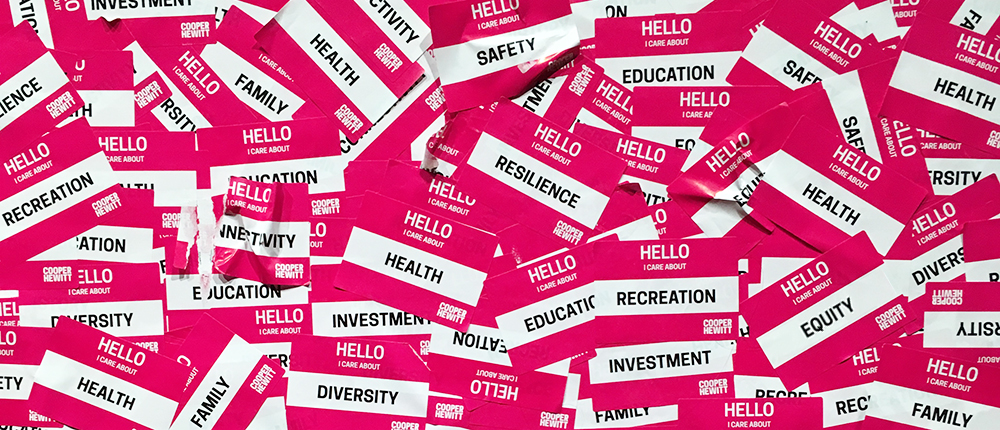
Citizen Design Value stickers selected by museum visitors to identify the issues they care most about in their communities.
While designing and making buildings is essential to our practice as architects, we have been interested in more than just buildings from the beginning. As a design firm we hope to have a broader influence, connecting directly with everyday issues facing cities and the people that live in them. Our practice is focused on engaging with the subjects and challenges of marginalized, modest-budget, and mundane situations where we believe design can have a big impact. In this context, our work with the public is focused on designing experiences and encouraging conversations that unlock fresh perspectives, both for us as designers and for the people who directly and indirectly encounter it.
The current iteration of the Process Lab grew out of a project called Gray Area, a series of designed publications and events in Philadelphia that were funded by the Pew Center for Arts and Heritage. Gray Area engaged community members to look critically at historic preservation in Philly, posing provocative questions to diverse groups of public and private stakeholders. As part of the Gray Area project, we developed a card deck allowing participants to self-direct tabletop conversations focused on the context, personal experiences, design possibilities, and potential results of a range of approaches to existing and developing urban fabric.
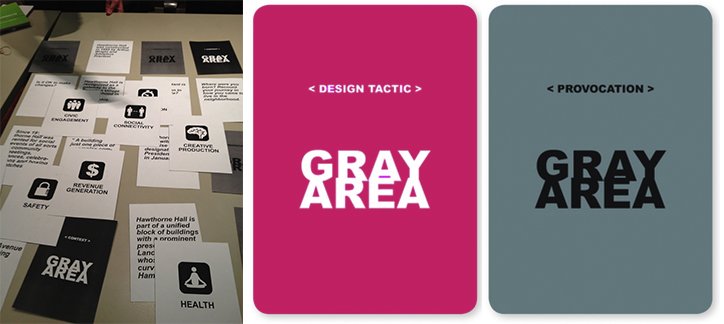
An alternative to conventional planning charrettes, GRAY AREA encourages residents to express and listen to often opposing opinions. Provocation cards and design tactic cards structure the discussion and design thinking process. © Gray Area/ISA
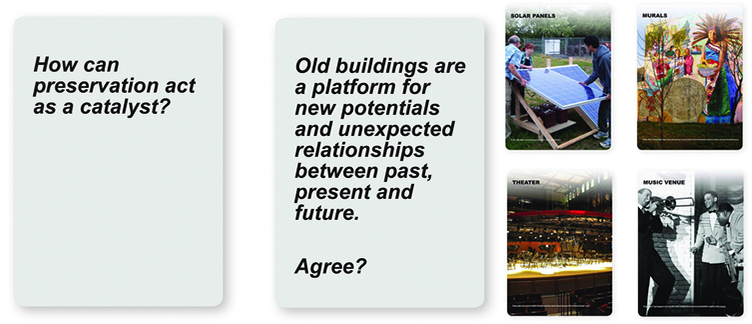
Provocation cards (two on left) ask pointed questions to start discussion about preservation and help determine whether to save, destroy, or leverage diverse sites for current future revitalization needs. Design tactic cards (four on right) allow people to associate new uses and values with existing context, provoking them to think outside of the box. © Gray Area/ISA
Gray Area allowed us to prototype tools and experiences embracing the undistilled complexity of the design process, empowering the public to participate in a collective discussion about potentially divisive and challenging issues facing communities. The Process Lab: Citizen Design project was exciting to us as a means to retool this method of working for a broad audience of design-intrigued museum goers. We were interested in better understanding how to share design strategies in a way that’s accessible to many people while also working within the vocabulary of the design professional. We believe this is a territory of mutual respect, creativity, and inspiration for all.
Cooper Hewitt invited us to build on the lessons of Gray Area, collaborating with Cooper Hewitt on an experience in the Process Lab to run in parallel with the exhibition By the People: Designing a Better America. The charge was to create a larger-scale interactive design environment that invites museum visitors to bring their own knowledge and experience to bear on provocative questions tied in to the broader exhibition content—issues like access to healthy food, affordable housing, and urban environments. The challenge was to translate the intimacy of the conversation facilitated by the Gray Area format to the anonymous setting of an institutional gallery. The Process Lab: Citizen Design model empowers a corps of civilian designers to take design thinking into daily life and gain insight into the process that leads to the designed world around them. It also helps us as professional designers to better understand the demands and possibilities of the everyday built environment that defines the experience of the public; these types of engagements create a shared vocabulary between citizen and professional.
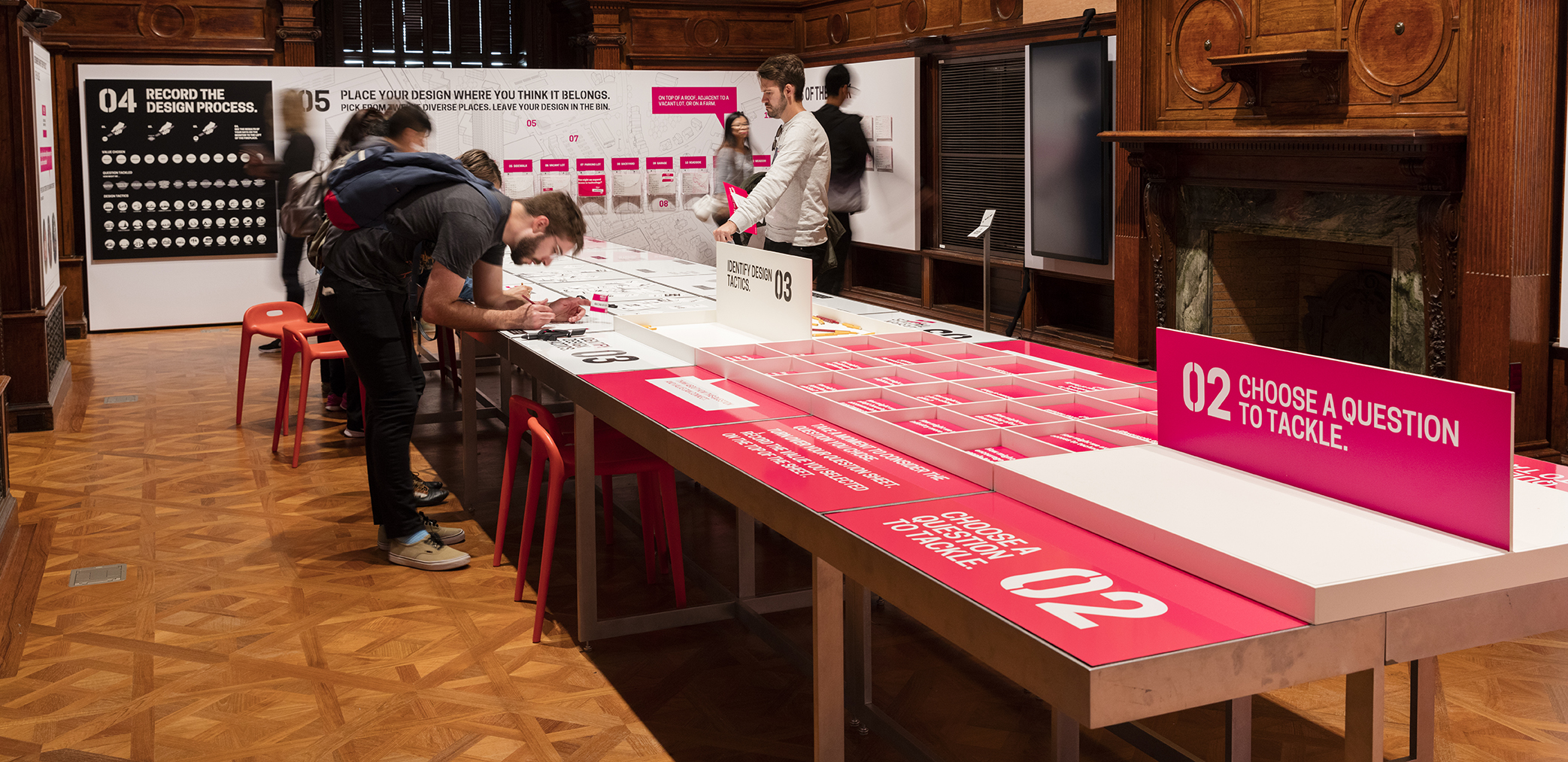
Process Lab: Citizen Design installation. Photo by Matt Flynn © Smithsonian Institution.
Working with the Cooper Hewitt team, we conceived Process Lab: Citizen Design as a workshop for making. The intent was to put people to work in imagining novel responses to design questions relevant to their communities. We aimed to create a visually provocative and clearly organized experience, balancing a simple, linear process with challenging activities offering open-ended possibilities for conversation and creation. We collaborated with Cooper Hewitt to structure the content in a manner that was easy to engage with on a variety of levels, including full participation in concept creation as well as observation of others’ ideas.
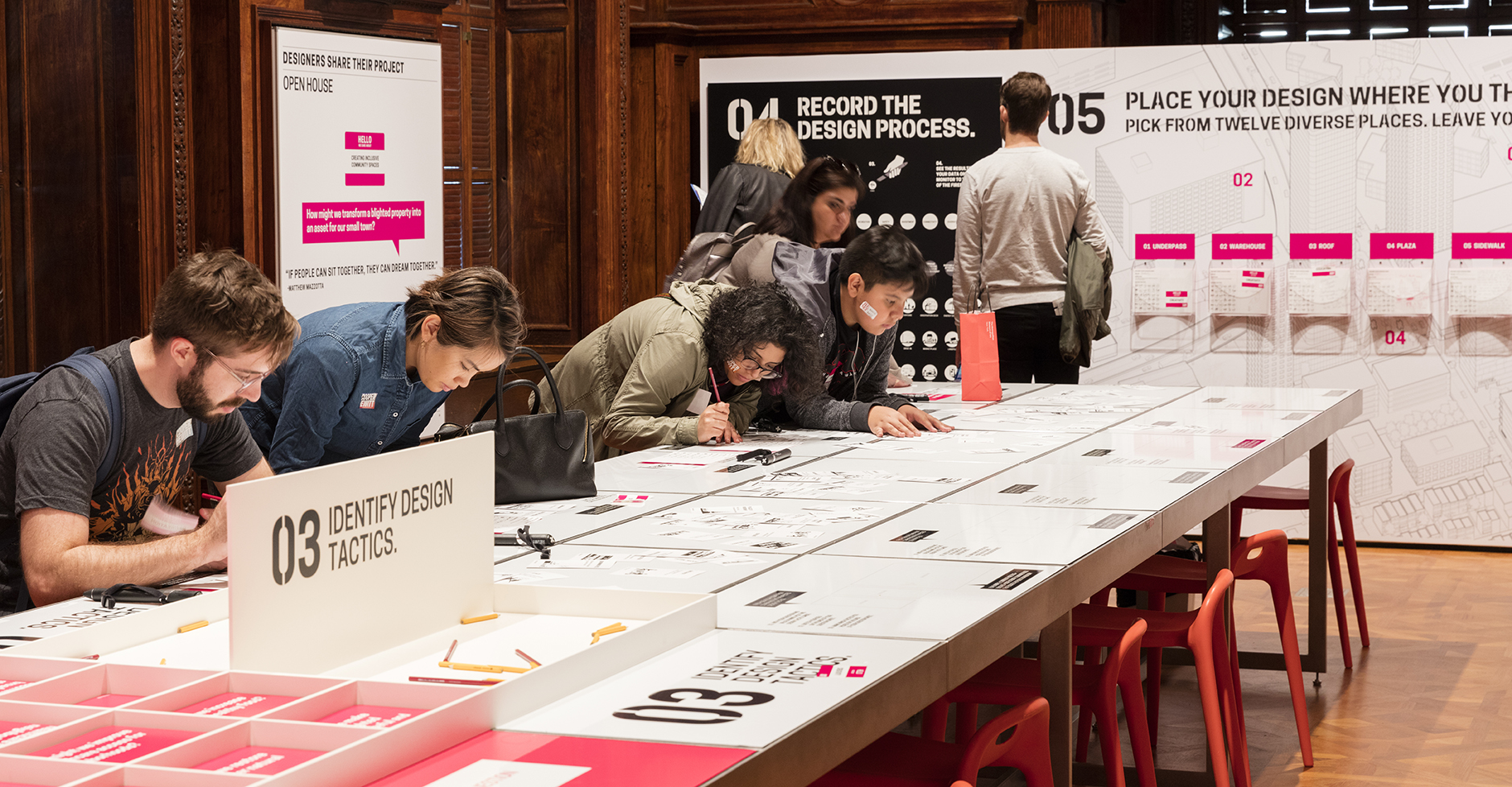
Process Lab: Citizen Design installation. Photo by Matt Flynn © Smithsonian Institution.
The result of Process Lab: Citizen Design is a hands-on workshop where thousands of design ideas are being created, documented, and archived—all representing citizen answers to one of twelve questions that articulate key challenges of our collective cultural moment. With recent political events, our broader ambition for citizen participation at a substantive level feels particularly relevant. We like the notion of moving toward the pragmatic realities of problem solving through grounded and collective intelligence. We hope that the Process Lab: Citizen Design can serve as a moment of reflection on the world around us and the potential to improve daily lives through design.
Process Lab: Citizen Design, an extension of By the People: Designing a Better America, is on view at Cooper Hewitt through September 24, 2017. The card decks for Values, Questions, and Design Tactics in Process Lab: Citizen Design are available for download.
For more information on ISA, visit:
is-architects.com
is-architects.com/gray-area
is-architects.com/process-lab